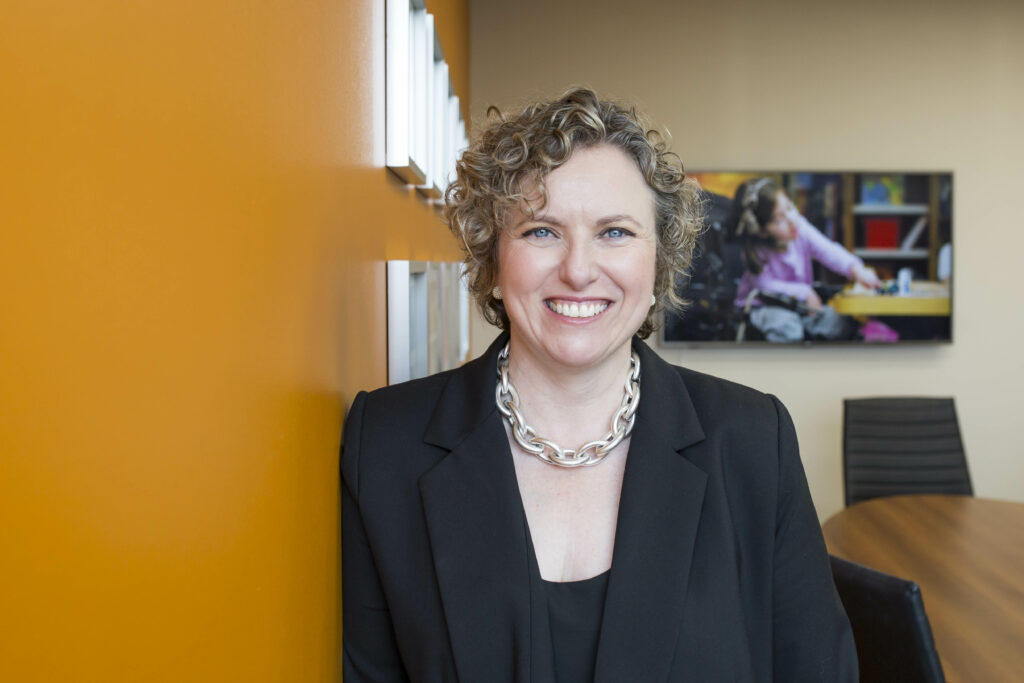As I think about National Child Day’s theme this year—that children should be seen and heard—I’m reminded of an encounter I had with one of Holland Bloorview’s clients a number of years ago. When I met this teenager, I was unfamiliar with the communication board he used to express himself. I tried to talk to him, but quickly learned I couldn’t understand him. I didn’t know what to do. It embarrassed me to admit it—that I could see him, but couldn’t hear him.
I vowed to do better. I turned to Google for advice, as we often do, and taught myself to accommodate him—not the other way around. The next time I met this client and his family, we were able to have a conversation, although I did have to ask him to slow down. Unsurprisingly, he was bright and engaging.
Reflecting on this, I recognize that I had disabled him the first time we met. Because I didn’t know how to communicate with him, we hadn’t been able to interact meaningfully. Had I not taught myself to understand him in his preferred mode of communication, I would have missed out on all that I have learned from him and the time I’ve enjoyed with him since our introduction. It would have been my loss, not his.
This realization made me think about the frequency in which children and adults who communicate differently are overlooked, and how we all suffer when this happens. It’s a naïve and short-sighted approach to welcome only the contributions of people who communicate through means with which we’re accustomed. Whether a person’s input is invited should not be contingent on their preferred mode of communication.
To me, National Child Day brings this into focus. It is an opportunity to show children that their voices are valued. It is a chance to acknowledge Canada’s commitment to respecting and honouring the rights of children—all children—within a global context. It is a time to amplify the thoughts and feelings of children with disabilities, who are often unseen and unheard.
At Holland Bloorview, it is our 24/7/365 goal to raise awareness around inclusion. For over 120 years we have cared for children with disabilities, and we see it as our responsibility to drive social justice forward for the clients we serve. I’d like to share with you one of the ways we do that.
In its fourth year, our Dear Everybody campaign is a national movement that seeks to end disability stigma and increase representation of people with disabilities, children included, in the media. Did you know that among the top 10 network TV shows in 2018, only 12% of characters with disabilities were portrayed by actors with the same diagnoses in real life? We take issue with this at Holland Bloorview, and we’re trying to change it.
If you feel similarly, I urge you to join thousands of your fellow Canadians by signing the Dear Everybody Agreement, which calls on brands and suppliers to make the media landscape more inclusive. Representation matters, and it’s time people with disabilities were included in the picture. Urge your favourite brands to include disability in the picture just as Roots has—an enthusiastic supporter of the Dear Everybody Agreement.
On this National Child Day, I’m proud to advocate for children, those with and without disabilities. Every child deserves to be seen and heard, but for that to happen, it’s up to all of us to use our voices to protect their rights.

